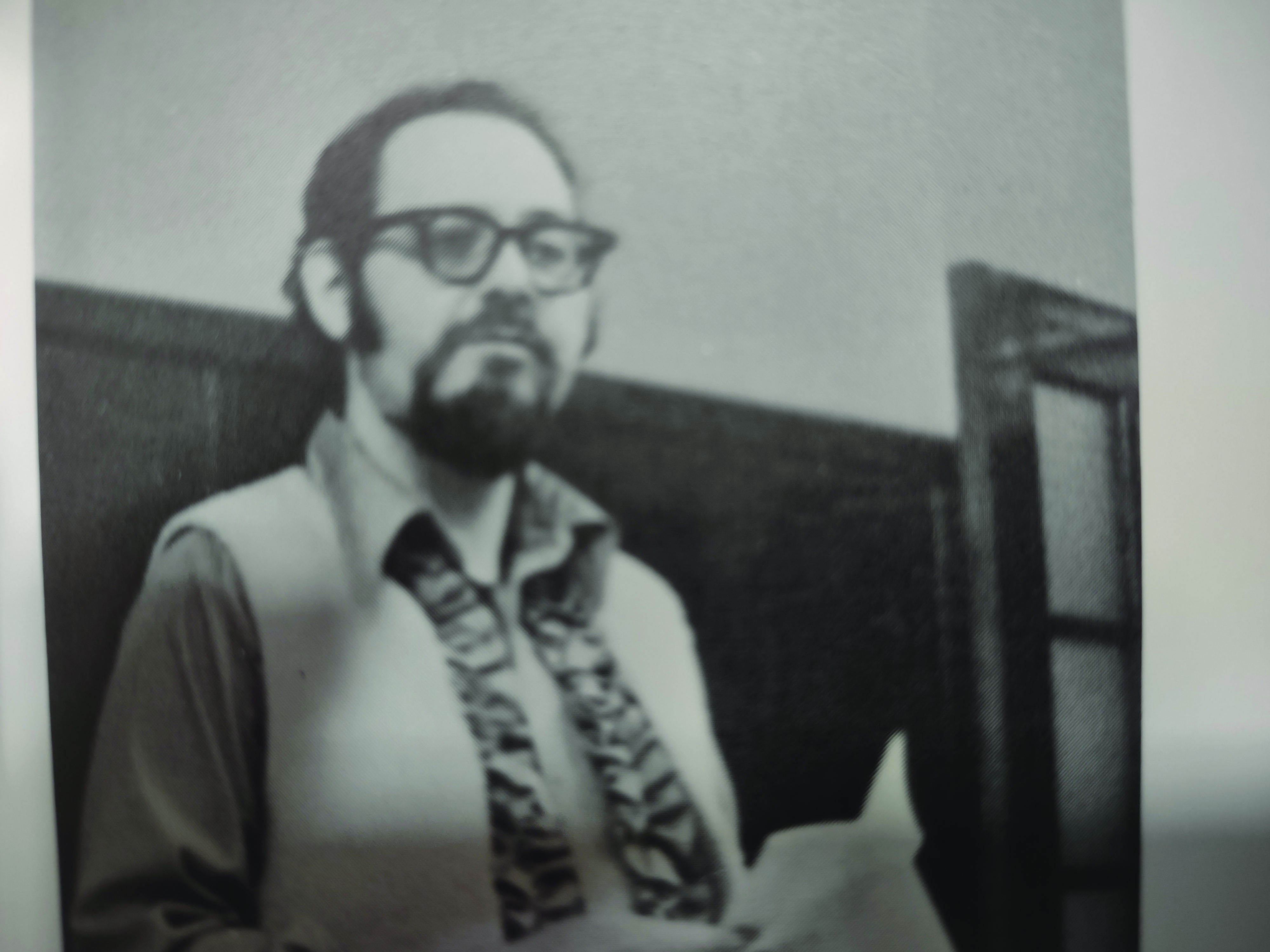

Alan Pickrell
Alan Pickrell joined the Emory & Henry English Department in 1964 as a speech and theater specialist. He later was appointed as chair of the first theater department at the college, a recognition of his leadership in cultivating theater as a serious academic and professional pursuit.
“I thought they were serious, so I embarked on full seasons of doing three to four shows, one-acts and directing classes. They got more than they bargained for and didn’t quite know what to do with me, how to tame me. I had no budget. We straightened nails. We had six flats, nobody knew how to build them. Marius (Blesi) said if you need stage properties call the college shop and they’ll build them. I was used to programs where we did it all ourselves. So my first impulse was to teach students how to build sets, find props and costumes. I started doing that right at the beginning. I don’t think they knew what to do with me.
“After six years. I got a $500 a year budget. I wrote to agents and agencies and told them I was from poverty stricken Appalachia, and we were trying to create an arts community for the region. They were helpful and reduced the royalties on the shows. I usually did one Shakespeare a year, because it was non-royalty. I could just make copies of the scripts from library books or my personal collection. We were doing the classics, while a lot of other schools were not. People that I knew in graduate schools said they were looking for people with training in classics, so that worked out,” Pickrell says.
His wife was his partner in everything he did. She held rehearsals when he was ill and made costumes. She loaned her clothes, jewelry, furniture and decorations to productions. “She put up with my late hours and being absent when I should have been present because I had a rehearsal. My children grew up in rehearsals and spent weekends helping me build sets. They took the child roles, and as they grew up played older roles when students were doing directing class and needed actors,” Pickrell says.
While Pickrell endured through no budget, constant blown fuses, poor lighting, a too small stage and everything having to be carried up two flights of stairs, he cherishes his memories of his students.
“The first student I met at E&H was very, very interested in theater, and I was able to help him get a fellowship to UNC for his master’s degree. He had a career in technical theater; he owned his own technical theater company. Bob and I got to be really close friends. He was the godfather of my oldest daughter. We stayed in touch for a long time. He called me two years ago to say goodbye. He had leukemia, and his doctor had told him he had two weeks left. He wanted to make sure we touched base before he went on. Our friendship endured all that time.”
He also remembers Deborah Strang, who is in California and has been in film and tv. Her film roles include “Eagle Eye,” “Kiss the Girls” and “Ramblin’ Gal.” He had hoped that Glenn Patterson would take over from him when Pickrell retired, but “the college had other ideas.” He was helped greatly by Todd Necessary who assisted him for the last eight to 10 years of his career. “They let me hire someone younger who could carry flats and props up two flights of steps. He’s the drama director at Marion High now.”
Pickrell trained in his native Nashville, Tenn., receiving his undergraduate degree from Belmont University and was selected for the Ford Foundation pilot master of arts in theater program at Vanderbilt University.
In addition to participating in more than 500 theatre productions in educational, community, semi-professional and professional companies, Pickrell was also involved in industrial films, television and radio.
He has published extensively. Known widely for his expertise on serial books, pulp fiction and “The Wizard of Oz,” he was an invited speaker at the Library of Congress Symposium on dime novels, pulp fiction and juvenile series. He has been published in various journals of juvenile literature.
His love for juvenile literature began when he was a child. He and Mary Alice, “the prettiest little girl,” shared a love of “The Wizard of Oz” series. She loaned him one of the book series, there are 42 in all, and wrote her name in it before she’d let him borrow it. Years later when he was trying to fill out his collection of the Oz books, he found one in New York City and bought it. “A few weeks later, we were in Nashville, and I was looking through the books in a locked glass case. I saw a copy of the book and pulled it out and looked at it. Mary Alice’s name was in the book. It was the same book I’d read all those years ago. Just for an instance I had my childhood in my hands. I could smell the furniture polish of her bookcase. So that elderly man standing in the book store with tears running down his face was me,” Pickrell says.
He applied his theater skills to the community as an actor, director and adaptor. He served Bristol Children’s Theatre, the Dogwood Players and Theatre Bristol, and he assisted with the development of the Bristol Children’s Theatre Academy.
His students admired him for his commitment to them, expressed through warmth and many hours of patient mentoring.
“I remember Barbara-Lyn Morris asking me ‘How will you feel when we get the fine arts center?’ It never occurred to me that we actually would. I said, ‘It may happen. I’ll probably stagger down the hill from Wiley, get to the door, an angel with a flaming sword will bar my entrance, tell me it’s the promised land, and I can’t enter, and I’ll fall dead right there.”